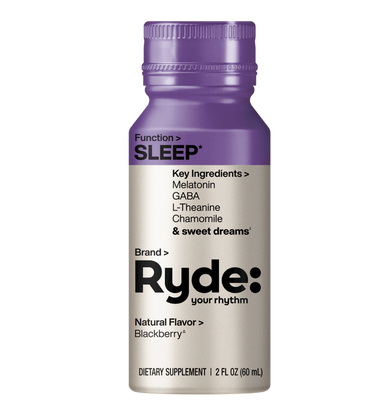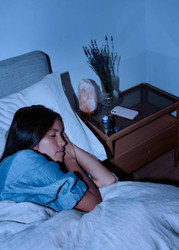5 Simple Ways to Improve Your Sleep
Posted by By Hannah Kilpatrick & Jack Cotter, PhD on 10/1/2025
Sleep is one of the most essential functions for both physical and mental health. For many adults, getting a full night of rest is easier said than done. Whether it's an inconsistent schedule, too much screen time, or trouble unwinding, sleep issues can quickly become part of the daily routine.
Here are five simple, science-backed ways to get your sleep back on track:
1. Keep a consistent schedule
Going to bed and waking up at the same time every day (even on weekends) helps train your internal body clock, or circadian rhythm. This consistency makes it easier to fall asleep and wake up naturally.
If you’re lying awake and can’t drift off, avoid forcing it. Instead, get out of bed and do something relaxing in low light until you feel sleepy again.
2. Step away from the screen
Phones, tablets, and TVs all emit blue light, which can suppress melatonin, the hormone that helps you feel tired. Scrolling or watching content late into the night also keeps the brain engaged at a time when it should be winding down.
Try turning off screens at least 30 minutes before bed. Reading a book or listening to calming music is a good alternative.
3. Build a wind-down routine
A good night’s sleep starts with a calm mind. Taking time to slow down before bed through deep breathing, light stretching, journaling, or even a warm shower, can make a big difference.
Creating nightly rituals signals to the body that it’s time to rest. It doesn’t have to be long or elaborate, just consistent.
4. Create a sleep-friendly environment
Light, noise, and temperature can all interfere with sleep quality. A dark, quiet, and cool room is ideal. If needed, try blackout curtains, white noise machines, or earplugs.
Temperature matters too! Most people sleep best when the room is around 65–68°F. Comfortable bedding and minimal distractions also help promote deeper sleep.
5. Rethink caffeine and alcohol
Caffeine can stay in your system longer than expected, making it harder to fall asleep even hours later. Avoid it in the late afternoon and evening.
Alcohol may make you feel drowsy, but it can disrupt sleep cycles and lead to more awakenings throughout the night. Limiting alcohol before bed can improve sleep quality overall.
Additional tips:
• Daily physical activity, especially in the morning or early afternoon, supports better sleep.
• Exposure to natural light in the morning helps regulate your body clock.
• If you’re struggling to fall asleep at night, consider skipping daytime naps
Occasional sleep issues are normal, but if sleep difficulties persist, it’s worth speaking with a healthcare provider.






